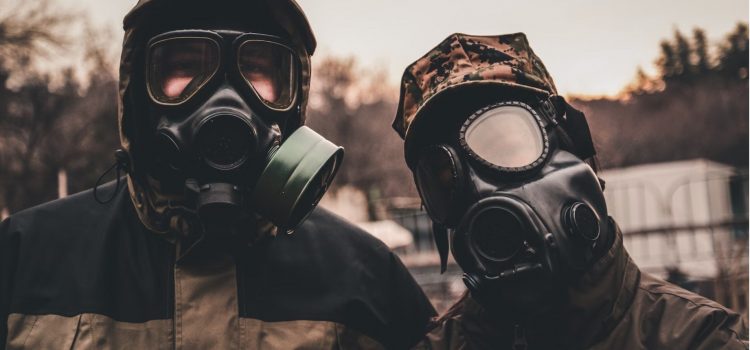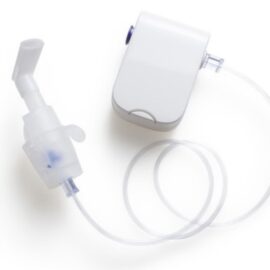
This is a free excerpt from one of Shortform’s Articles. We give you all the important information you need to know about current events and more.
Don't miss out on the whole story. Sign up for a free trial here .
Could you survive a disaster, whether natural or manmade? How prepared should you be?
There is a range of preparations you can make now to keep your options open in the event of a disaster. To survive a sudden crisis, it’s important to consider your access to power, water, grocery stores, hospitals, or other services.
Read on to learn how much you should prepare to survive a disaster.
How Prepared Are You?
Empty grocery store shelves, missing toilet paper, and sky-high prices for hand sanitizer: The pandemic brought more than illness—it demonstrated the scarcity that can accompany a natural disaster. In its wake, and as climate change threatens more disruptions to supply chains as well as more severe weather events, many people are discovering that they need to consider how to prepare to survive a disaster. The things we depend on to sustain our daily lives may not be as dependable or sustainable as we thought.
How fragile is your lifestyle? And what can you do to make it less fragile? As Nassim Nicholas Taleb explains in Antifragile, there are two types of systems: A fragile system only works well when every part is working correctly, while an antifragile system has enough redundancy that it’s adaptable: If one part fails, other parts will compensate for it.
Taleb’s book focuses mostly on the philosophy of antifragility, but in this article we’ll explore a practical application of the principle: disaster preparedness. Based on his definition of fragility, the key to making your lifestyle less fragile in order to survive a disaster is to build in redundant sources of the things that you depend on.
| What Is a Prepper? The term “prepping” is an abbreviation of “preparing,” and people who spend time and money preparing for possible crises are sometimes called “preppers.” Strictly speaking, anyone who prepares is a prepper, but to some people the title “prepper” carries the connotation of a preparedness enthusiast—someone who considers disaster preparedness a high priority and makes a point of being more prepared than the average person. |
What You Can Do to Prepare
To survive a disaster it’s important to address each basic need. There are a range of actions you could take, depending on how many resources you’re willing to commit to expanding your options in that area.
- Food: If you can’t buy food because supply chains have been disrupted, what are you going to eat? The simplest solution is just to store food in your home. The cost of this solution ranges from almost nothing to a significant investment, depending on how large of a food reserve you want to keep on hand: You can probably keep a week’s worth of food in your kitchen without any special considerations. If you want a month or more of reserves, you may want to set aside a closet or storage room for food storage.
- Water: As with food and consumable commodities, it’s a good idea to have some bottled water stored for emergencies. Bottled water typically has a shelf life of one to two years. The water itself doesn’t spoil, but the plastic bottle may start to break down, making the water taste bad and eventually making the bottle leak.
- Commodities: Any disaster that disrupts supply chains for food would also likely disrupt supply chains for other consumable products, like toilet paper, soap, toothpaste, deodorant, and feminine hygiene products. Sometimes, industry-specific upheavals may also create shortages of one or more of these products in isolation. So, as with food, keeping a supply of these on hand can help keep your options open.
- Medicine: What would you do if you or someone you love needs medical attention, but normal health care services aren’t available? The scope of injuries and conditions that you can treat yourself is limited by both your level of medical training and the medical supplies at your disposal. At a minimum, you should keep a basic first aid kit and a supply of any medications that you take regularly (within the limits allowed by prescriptions).
How Much Should You Prepare?
Some of the preparations to survive a disaster are easy and inexpensive, while others require a substantial and perhaps ongoing investment of time and resources. How much should you prepare and which measures should you take? The optimal answer depends on your situation, values, and preferences, but there are a few principles that can help you find the optimal solution for your situation.
To begin with, most disaster preparedness authorities agree that everyone who is able should be prepared to evacuate for three days and to shelter in place for two weeks. Then, in theory, you can use a risk assessment to calculate which additional preparations are worth it: ‘Risk’ in the mathematical sense is defined as the probability of an undesirable event occurring multiplied by the consequences it would have if it did occur.
For example, if your home is worth $250,000 and there’s a one-in-a-million chance of it being destroyed by a meteorite impact in any given year, then the risk of a meteorite destroying your home calculates out to $0.25 per year. So, if you can mitigate the hazard (for example, by building a meteorite defense system or insuring your home against meteorite damage) for less than $0.25/year, it’s a good deal.
As Taleb points out in Fooled by Randomness, a risk assessment is a tool for dealing with uncertainty, not a prophecy about the future. If you make preparations to survive a particular disaster because the cost of the preparations is less than the risk of the disaster they protect you from, then your preparations are a responsible investment, regardless of whether the disaster actually happens.
In practice, though, assessing the risk of disasters is difficult at best. For one thing, the probability of any given disaster occurring can be difficult to estimate. For another thing, it can be difficult to put a numerical value on the consequences. For example, what is the cost of going hungry? If it came down to it, you’d probably spend everything you have to avoid starving. But if the probability of that happening is low, then that doesn’t justify spending all your savings on food storage now.
So in practice, it often comes down to a question of your resources and values: What preparedness measures can you realistically afford? Which ones will most effectively keep your options open in the event disaster strikes? Which ones will give you the most peace of mind?
Disaster Survival Questions
Below are three discussion questions that will help you consider how prepared you are to survive a disaster:
- If businesses and social services in your area shut down or become overwhelmed in a crisis, how long are you currently prepared to shelter in place? How comfortable are you with this level of preparedness?
- What level of preparedness do you think it’s reasonable to expect of people? To what extent is it an individual’s responsibility to be prepared for crises?
- In the event of a crisis, to what extent would you feel it was your responsibility to share your supplies or otherwise help people who didn’t prepare as well as you did?

Want to fast-track your learning? With Shortform, you’ll gain insights you won't find anywhere else .
Here's what you’ll get when you sign up for Shortform :
- Complicated ideas explained in simple and concise ways
- Smart analysis that connects what you’re reading to other key concepts
- Writing with zero fluff because we know how important your time is






